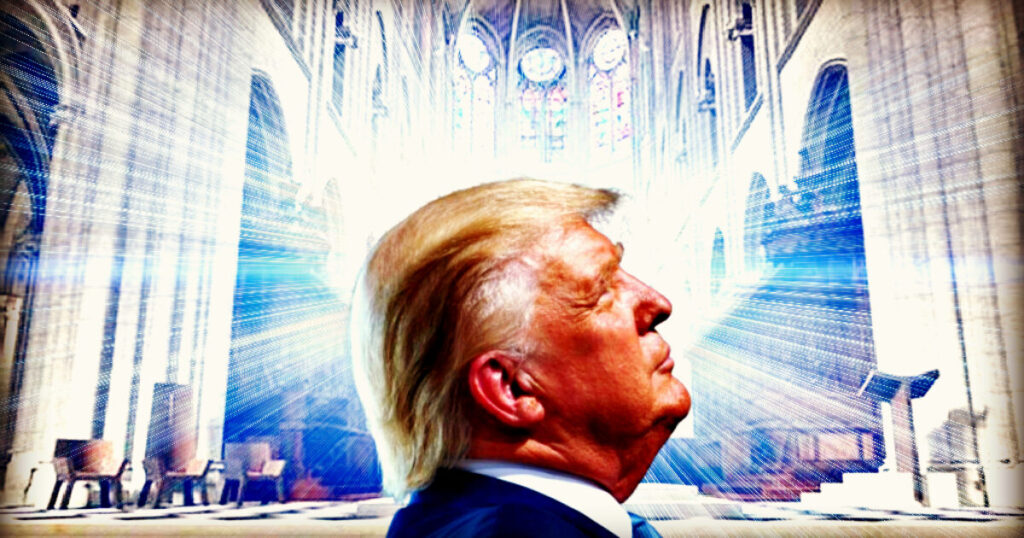Donald Trump’s recent visit to Paris has been described as a stabilizing force for a city and a continent grappling with the aftermath of conflict and rising secularism. Europe, long heralded as a cradle of Western civilization, finds itself in a precarious state after nearly eighty years without an all-out land war. The devastation wrought by the Ukraine conflict has been particularly impactful, eroding vital economic resources and energy reserves necessary for Europe’s sustenance. This conflict, deemed avoidable, has resulted in the loss of countless lives and compounded the identity crises that have plagued Europe for decades. As a result, Europe now appears as a shadow of its former self, both economically and culturally drained.
Once regarded as a burgeoning economic contender that surpassed the United States in GDP soon after World War II, Europe now faces a grim trajectory. Its demographics reflect an aging population that mirrors the continent’s declining vigor. The influx of foreign migrants, particularly from Islamic backgrounds, has led to shifting demographics that many see as undermining historical European culture. This migration crisis, exacerbated during the Biden administration, has left Europe more reliant on global competitors such as Russia, China, and nations in Africa and the Middle East, further eroding its cultural confidence. The consequences of these challenges present a complex web of issues undermining the continent’s stability.
Worsening economic conditions amplify Europe’s challenges, as birth rates plummet, economies stagger, debt levels soar, and the influence of Christianity wanes under the weight of rising secularism. The secular narrative has not only diminished the spiritual coherence that once characterized European societies but has also stunted robust leadership across the continent. In this context, Donald Trump’s emergence as a figure of renewed hope brings much-needed reassurance and inspiration to European leaders searching for guidance in turbulent times. His visit to Notre Dame, a symbol of Europe’s great history, mirrored a desire to revive the lost spirit of the continent, echoing the significant losses and challenges that Europe currently faces.
The bond between Europe and America, articulated by figures like John F. Kennedy, suggests that their destinies are interconnected. As the “daughter of Europe,” America embodies the cultural and historical legacies that link these two regions. However, as both societies age, they risk becoming reliant on immediate solutions while increasingly losing sight of long-term interests. In this regard, Trump represents a transformative leadership style that advocates for accountability and self-reliance rather than fostering dependence. This shift seeks to empower European states towards greater independence, emphasizing that true strength comes from self-sufficiency rather than reliance on the U.S., which cannot indefinitely shoulder Europe’s burdens.
The lessons imparted by Trump’s leadership challenge European leaders to recognize the importance of fostering independence in a world marked by increased competition and generational challenges. Though there may be initial resistance to the notion of self-reliance, the recognition that such independence is ultimately beneficial begins to take root. European leaders express a sense of acknowledgment during Trump’s visit, illustrating a shift towards an understanding of responsibilities that foster strength rather than perpetuating cycles of dependency. The metaphor of parenting is used to illustrate the broader societal trend of nurturing independence, drawing attention to how maturation requires individuals and nations to confront hard realities.
In essence, Trump’s approach serves to counter decades of negative narratives that have permeated Europe. His optimism and assertiveness resonate deeply with European leaders, suggesting a path towards renewal and an affirmation of the continent’s historical values and achievements. This shift in sentiment marks a significant departure from the prevailing pessimism, instilling a belief in the potential for revitalization and a rejection of decline as an inevitability. The emphasis on self-confidence reinforces a conviction in the continued relevance of European civilization, heralding a hopeful future for the West amidst growing uncertainties. Ultimately, Trump’s statesmanship embodies a call to reaffirm shared values and sustain the foundations upon which European societies were built—all while looking towards a brighter horizon.

